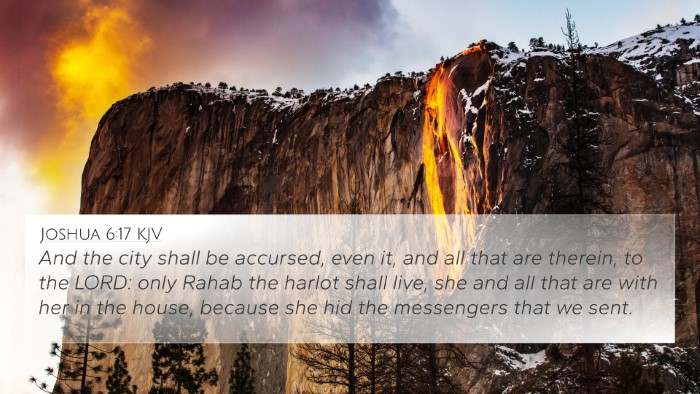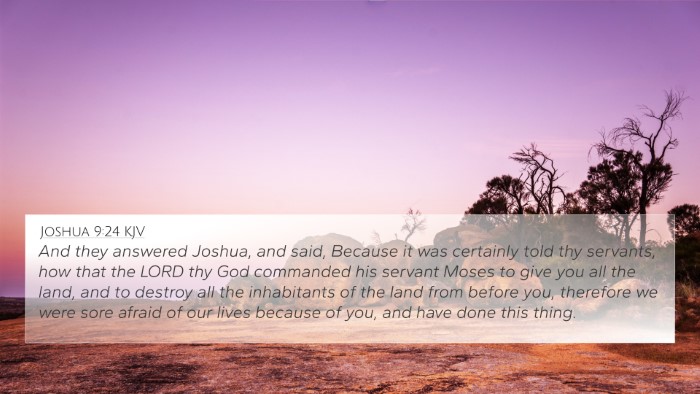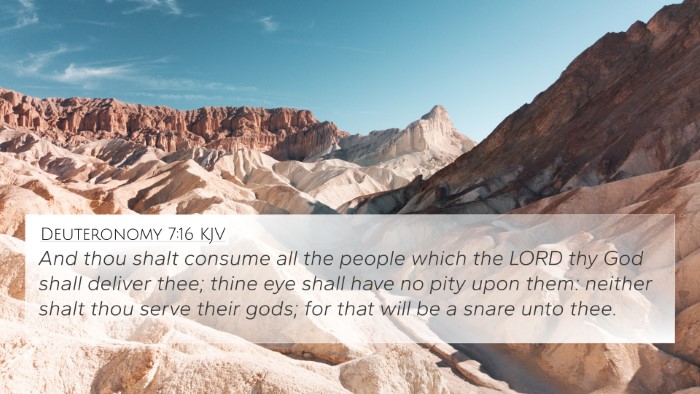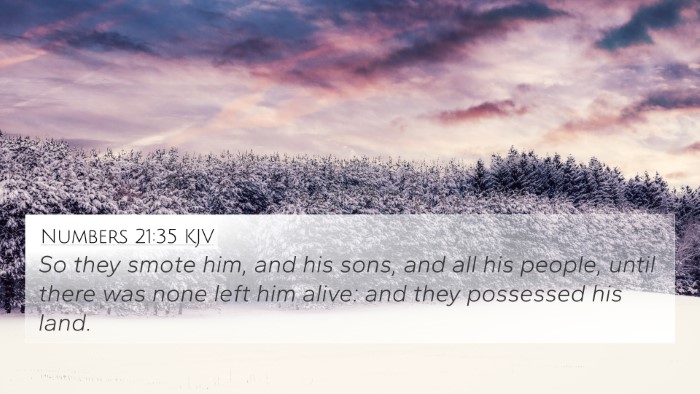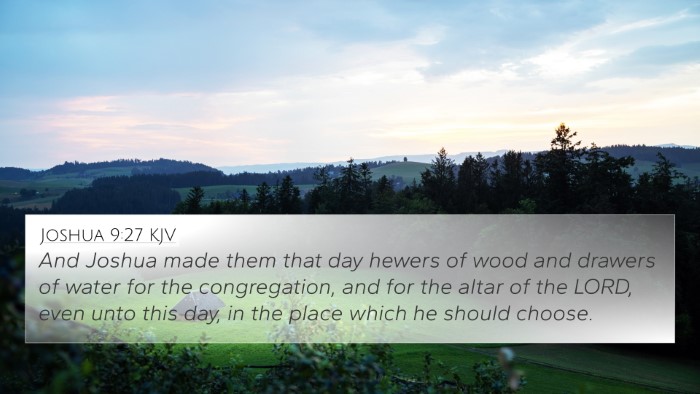Understanding Deuteronomy 20:16
Verse: Deuteronomy 20:16 - "But of the cities of these people, which the Lord thy God doth give thee for an inheritance, thou shalt save alive nothing that breatheth."
Overview of the Verse
Deuteronomy 20:16 presents a divine command regarding the treatment of certain cities in Canaan. This instruction reflects God's judgment upon the nations that inhabited the land, illustrating a significant aspect of Israel's conquest narrative. This verse underscores both the severity of God's judgment and His sovereign authority over the nations.
Historical Context
The Israelites are about to enter the Promised Land, having wandered in the wilderness for 40 years. God is giving them specific instructions on how to engage with the cities of Canaan, particularly regarding those who have become examples of disobedience and moral corruption.
Commentary Insights
- Matthew Henry: Henry emphasizes the justified nature of God's commands, arguing that the total destruction of these cities reflects God's righteousness in judging nations that have filled their land with iniquity. He also highlights how God protects His people by removing these corrupting influences.
- Albert Barnes: Barnes notes the gravity of this command and its implications for understanding divine justice. He points out that sparing any inhabitants would lead to spiritual and moral contamination for Israel as they strive to remain faithful to God.
- Adam Clarke: Clarke connects this directive to the overall theme of holiness required of God's people. He argues that these strict measures are both a consequence of divine judgment and a protective measure for Israel's future relationship with God.
Thematic Connections
This verse is part of a broader theme within the Pentateuch concerning purity, judgment, and the covenant relationship between God and Israel. It raises important questions about divine justice, war, and righteousness.
Cross-References
Deuteronomy 20:16 can be cross-referenced with the following verses:
- Exodus 23:24: A command to not bow down to foreign gods.
- Deuteronomy 7:2: Instructions about destroying the nations that inhabit the Promised Land.
- 1 Samuel 15:3: God's command to Saul to completely destroy Amalek.
- Joshua 6:21: The destruction of Jericho and its inhabitants.
- Jeremiah 50:21: God's judgment against the unfaithful nations.
- Matthew 10:15: Jesus discussing the judgment against unrepentant cities.
- Revelation 21:8: The fate of the unfaithful in the final judgment.
Interpretive Considerations
Interpreting Deuteronomy 20:16 requires careful consideration of God's justice and His purposes throughout history. The text invites reflection on how contemporary believers understand God's judgment in light of the New Testament teachings and God's desire for mercy and repentance.
Conclusion
Deuteronomy 20:16 serves as a sobering reminder of the consequences of disobedience. The harsh admonitions about the nations' inhabitants illustrate God's unwavering commitment to holiness and righteousness. As believers today, studying these passages can enhance our understanding of God's character and the seriousness of His commands.
Useful Tools and Resources
- Tools for Bible cross-referencing help researchers identify thematic links across the sacred text.
- A Bible concordance allows users to find specific words and their occurrences throughout the Bible.
- A Bible cross-reference guide aids in exploring connections between biblical texts.
- Cross-reference Bible study methods provide structured approaches to discerning intertextual relationships.
- Understanding how to use Bible cross-references can enhance personal study and sermon preparation.
Final Thoughts
Engaging with verses like Deuteronomy 20:16 through cross-referencing enriches one's faith and understanding. It opens a dialogue between the Old and New Testaments, helping modern readers grasp the continuous narrative of God's sovereignty and mercy.






